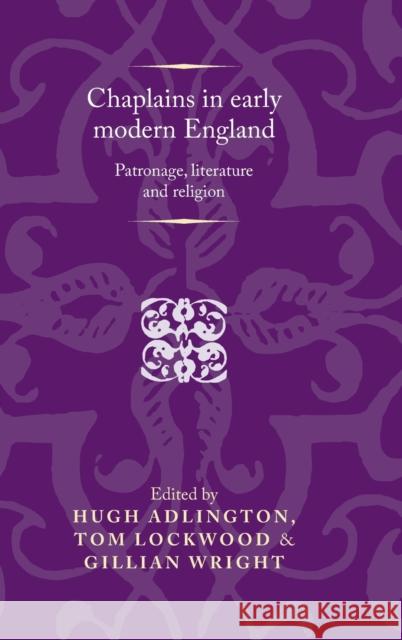Chaplains in early modern England: Patronage, literature and religion » książka
Chaplains in early modern England: Patronage, literature and religion
ISBN-13: 9780719088346 / Angielski / Twarda / 2013 / 240 str.
Chaplains in early modern England: Patronage, literature and religion surveys the roles and significance of chaplains between the late sixteenth and early eighteenth centuries. Chaplains, though often neglected in scholarly accounts of the early modern period, were culturally pivotal figures who made important contributions both to the public sphere and to domestic life throughout the nation. Well-educated and often well-connected, chaplains occupied an ambivalent position within early modern culture: socially subordinate to the patrons who employed them, they nonetheless frequently enjoyed high levels of spiritual, cultural and even political authority. This collection explores both the ambiguities and the opportunities involved in early modern chaplaincy, and also shows how appreciating this complex role can illuminate our understanding of early modern English religious, political and literary cultures.
This remarkable volume represents a pioneering collaboration between leading early modern historians and literary scholars. Chapters by Kenneth Fincham, David Crankshaw and Mary Morrissey analyse the legal structures governing the appointment and remit of chaplains and map their roles and functions within early modern England. Case studies by Hugh Adlington, Tom Lockwood, Angus Vine, Christopher Burlinson, Erica Longfellow, William Gibson and Grant Tapsell examine individual chaplains, including discussion both of their more religiously focused activities - serving and advising their patrons, shaping church policy and theology, participating in interconfessional dialogues - and of their more literary and cultural roles, as poets, scribes and editors.
This interdisciplinary volume will be of interest to academics and students working on early modern English history, religion and literature.











